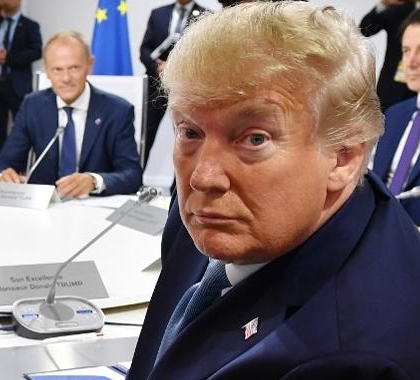Judging from the apoplectic reaction of the American media, U.S. President Donald Trump was spectacular at the just-concluded G7 conference. Perhaps his finest moment since the second presidential debate of 2016. A trade deal “in principle” with Japan. Openings in talks with both China and Iran. Progress in talks with the EU and the U.K. The hint of normalization of relations with Russia. Hope for the de-nuclearization of the Korean peninsula. Oh, and the possibility that next year the G7 will meet at Trump’s resort in Doral, Florida. All of this backed by a strong U.S. economy and a strong U.S. Dollar, versus weakness elsewhere. A vibrant U.S. energy sector. And, growing confidence of re-election.
Three years ago, Trump stepped onto the world stage while many nations were still reeling from the 2008 Financial Crisis, confronted by 16 years of war in Iraq and Afghanistan, the emergence of an ISIS-led caliphate, a surge of Middle East refugees, the belligerence of Russia and Iran, instability in Korea and Venezuela, the rise of mercantilism in China and its renunciation of democratic reform, a growing problem of illegal immigration here in the United States, the economic stagnation of America’s lower middle class, and gathering agitation for replacing fossil fuel by renewable energy. There was also a series of attempts at a soft coup through recounts, faithless electors, the 25th Amendment and, of course, investigation of fake Russia Collusion.
Undeterred, Trump commenced deregulating the economy, populating the executive, judiciary and administrative agencies, and commenced re-negotiating many of our trade deals and relationships. He also got some help from Congress on tax reform and replenishing the military, but not much else, The economy went from second gear into overdrive, we became the world’s largest energy producer, a bull market got underway, and these conditions have enabled the government to deal with a continuing large budget deficit. In contrast, weakness has developed elsewhere in the world. Europe totters on recession. China, whose own currency is non-transparent, appears to be short dollars. Iran and Venezuela are collapsing. While trade wars bode ill for us, our underlying strength and attention to possible soft-spots puts us in a much different position than the countries with which we are dealing.
While the U.S. is in a strong position, it isn’t demanding much. With regard to Iran, no nukes and no ballistic missiles, backed by meaningful inspections. In return for which, we’d not only lift our sanctions that are crippling the country, but also be a party to short-term credit facilities to help that country get back on its feet. We’ve already tendered our list of “demands” to China none of which go beyond fairness, reciprocity and respect for our intellectual property. As a great maritime nation, our interest is obviously in free trade, to include the extension of free trade to agriculture. In theory, our goal should be, as Trump has stated, no tariff or non-tariff barriers to trade, and no subsidies.
In non-democratic countries, we are concerned about the exploitation of workers, environmental degradation and consumer fraud. Lack of transparency in currency and in state-owned enterprises make economic calculations difficult. The tacit promise of the Communist Party to the people of China is that they will deliver economic growth. Oppression of minorities, urban pollution, endangerment of underground coal miners, the harvesting of organs from prisoners, all these things and more come with the package, and are tolerated because the Communist Party has delivered spectacularly in lifting the masses of people of China out of abject poverty. But, how confident can any non-democratic government be with respect to the consent of the governed?
With respect to our democratic trade partners, the post-war period is over. It was understandable that the U.S. would essentially finance the recovery of much of the world from the devastation of WWII explicitly through the Marshall Plan and implicitly through continuing trade deficits and military guarantees. That time is now past and it is time for fairness and reciprocity in our relations.





